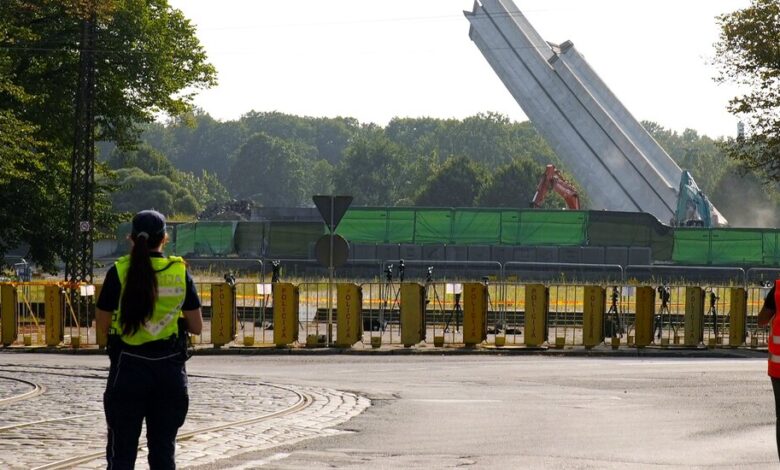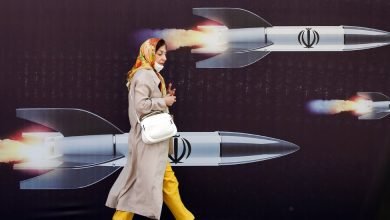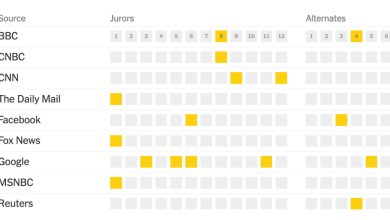Latvia tears down a controversial Soviet-era monument in its capital.

The nearly 260-foot tall obelisk, erected during the Soviet rule of Latvia, had towered in a park in the Baltic nation’s capital for nearly four decades.
This week, it came tumbling down as part of a broader government effort to show solidarity with Ukraine and to remove symbols of what many Latvians consider to be a traumatic chapter of the country’s history.
Featuring five spires and five-pointed stars, the monument was built in 1985 in Latvia’s capital, Riga, as a memorial to Soviet soldiers killed in World War II. Latvia was occupied by Nazi Germany in 1941, inaugurating the mass killing of Jews, Roma and those the Nazis deemed politically objectionable. Soviet forces ousted the Nazis in 1944, and Latvia remained under Soviet rule until regaining its independence in 1991 as the Soviet Union dissolved.
About one-third of Latvia’s two million residents speak only or primarily Russian. Many arrived during the decades of Soviet rule, or are their descendants. In those years, tens of thousands of Latvians fled the country or were deported, and Moscow sent an equal number of Russians into Latvia. Such a large Russian-identified minority has caused fissures within the country. In recent years, the Latvian government has sought to limit the proliferation of Russian in Latvia by, among other things, limiting Russian language instruction in the country’s schools.
Russian speakers have gathered over the years at the obelisk each May 9 to commemorate the Soviet ouster of Nazi rule, making it a contentious spot in the city.
Officials in Riga approved the demolition of the obelisk in May, after the Latvian Parliament voted to remove it.
On Wednesday, the Riga City Council noted that the monument had become “an ideologically charged symbol of the totalitarian regime of the Soviet Union and the Soviet army.”
“At a time when Russia, as the heir of the Soviet Union, is committing crimes against humanity in Ukraine, the existence of the monument risks polarizing society,” it said in a statement, adding that Latvia would not allow symbols that “justify and glorify aggression.”
On Thursday, images of the monument collapsing from its base into a surrounding pool were shared by local media and applauded by Latvian officials.
“Closing another painful page of the history and looking for better future,” said Edgars Rinkevics, the nation’s foreign minister, in a tweet that shared video of the monument toppling.
“The time has come to complete de-communization throughout Europe and finally free ourselves from the Soviet totalitarian past,” Olena Kondratiuk, the deputy speaker of Ukraine’s Parliament, wrote on Telegram.
The Kremlin has accused European countries of rewriting history and disregarding Russia’s role during World War II, and a Russian official called the demolition of the monument an affront to Soviet soldiers.
The events in Riga “cannot cause anything but a feeling of deep outrage, because a monument to the warriors who liberated Riga was destroyed there,” said Mikhail Shvydkoy, a Russian presidential envoy for international cultural cooperation, according to Russia’s Interfax news agency on Wednesday.
Latvia is not alone in seeking to dismantle symbols of the Soviet era: Other nations critical of Russia’s invasion of Ukraine, including Poland, have said they will do the same. Estonia recently removed a Soviet-era tank from a World War II memorial, prompting a wave of cyberattacks from a Russian hacking group.
Anton Troianovski contributed reporting.





